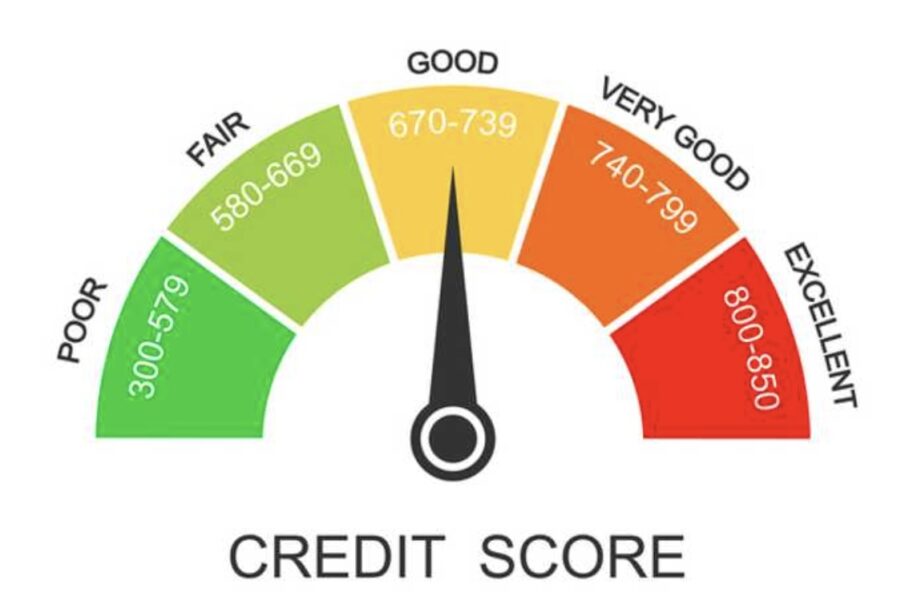Strategies to Increase Your Credit Score

In today’s digital age, a strong credit score is your key to financial opportunities. It acts like a report card, influencing loan approvals, interest rates, insurance premiums, and even apartment rentals. A high score signifies responsible credit management and unlocks doors to better financial deals. But how do you build a strong credit history and improve your credit score?
This guide explores key strategies to elevate your creditworthiness, from understanding the factors that affect your score to implementing actionable steps.
Decoding Your Credit Score: The Building Blocks
Credit bureaus – Experian, Equifax, and TransUnion – maintain credit reports on individuals, containing information on your credit history, including:
- Payment History: This is the most crucial factor, accounting for roughly 35% of your score. It reflects your on-time payments for credit cards, loans, and other debts.
- Credit Utilization Ratio: This refers to the amount of credit you’re using compared to your total credit limit. Ideally, you should keep this ratio below 30%. A high utilization ratio indicates you’re stretching your credit thin, which can hurt your score.
- Credit Mix: Having a healthy mix of credit accounts, including installment loans (mortgages, car loans) and revolving credit (credit cards), can positively impact your score (around 10%).
- Credit Inquiries: Every time you apply for a new line of credit, a hard inquiry is placed on your report, which can slightly lower your score (around 10%). However, multiple inquiries within a short period can be a red flag for lenders.
- Length of Credit History: The longer your credit history, the better (around 15%). This demonstrates your experience in managing credit responsibly over time.
Understanding these factors empowers you to take control of your credit score.
Building a Strong Foundation: Essential Strategies
Here are core practices to build a solid credit foundation:
- Pay Bills on Time – Every Time: This is the golden rule. Late payments can significantly damage your score. Set up automatic payments or reminders to ensure timely payments.
- Become a Credit Card Master: Use your credit card responsibly and pay your balance in full each month. This builds a positive payment history and keeps your credit utilization ratio low.
- Become an Authorized User: Consider becoming an authorized user on a trusted friend or family member’s credit card with a good history. Their positive payment history can be reflected on your report, giving your score a boost.
- Don’t Max Out Your Credit Cards: Avoid using more than 30% of your credit limit on any card. This demonstrates your ability to manage credit without overextending yourself.
- Be Strategic About New Credit: Don’t apply for multiple lines of credit simultaneously. Each application triggers a hard inquiry, which can lower your score. Apply only when necessary and space out your applications.
Climbing Higher: Advanced Techniques
Once you’ve established a good credit foundation, consider these advanced strategies:
- Maintain a Mix of Credit: Having a mix of installment loans and revolving credit can positively impact your score. If you only have credit cards, consider a secured loan.
- Graduate from a Secured Card: If you have limited credit history, consider getting a secured credit card. You provide a security deposit that becomes your credit limit, and responsible use can help build your credit score. Once you demonstrate responsible credit management, you may graduate to an unsecured card with a higher limit.
- Dispute Errors on Your Credit Report: Regularly review your credit reports (you’re entitled to a free copy annually from each bureau) and dispute any errors you find. Incorrect information can bring down your score.
- Keep Old Accounts Open (Even if Unused): Closing old credit card accounts can shorten your credit history, negatively impacting your score. Consider keeping older accounts open, especially if they have a high credit limit and no annual fees. Just ensure they remain inactive to avoid temptation.
Remember, building a good credit score takes time and consistent effort. By following these strategies and maintaining responsible credit habits, you’ll gradually see your score improve and unlock a world of financial opportunities.
Also read: Losing money trading? A regular savings plan could help








